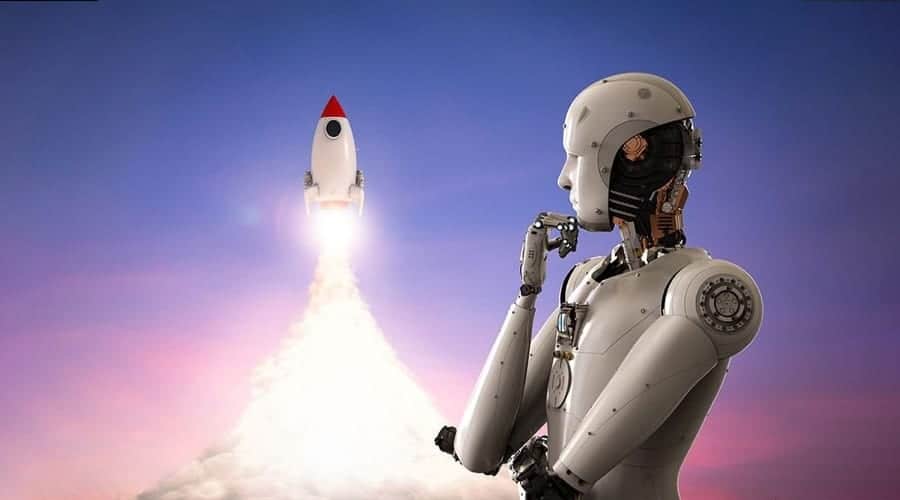The dawn of Artificial Intelligence (AI) in the construction industry isn't just a new wave; it’s a...
The Future of AI in Space Exploration
Imagine a world where humanoid robots navigate the harsh terrains of Mars, fully autonomous spacecraft traverse the galaxy, and advanced AI-driven satellites help us uncover the deepest mysteries of the universe. Welcome to the future of AI in space exploration, a rapidly evolving field that's set to revolutionize our understanding of the cosmos.
The Current State of AI in Space Missions
AI has already begun to play pivotal roles in various space missions. For instance, NASA's Mars rovers, such as Curiosity and Perseverance, are equipped with AI algorithms that enable autonomous navigation and decision-making. These rovers can analyze terrain, avoid obstacles, and plan routes without direct human intervention.
Moreover, AI is being used to process the vast amounts of data collected by space telescopes and satellites. For example, the European Space Agency's (ESA) Gaia mission is mapping the Milky Way in unprecedented detail, thanks to AI algorithms that sift through terabytes of stellar data to identify celestial objects and phenomena.
Key Trends Shaping the Future of AI in Space Exploration
1. Autonomous Spacecraft
The next generation of spacecraft will be increasingly autonomous, capable of making critical decisions in real time. This autonomy is crucial for deep space missions where communication delays with Earth can be significant. AI-driven systems will enable spacecraft to adjust their trajectories, manage onboard systems, and even conduct scientific experiments without waiting for instructions from mission control.
2. Enhanced Data Analysis
The cosmos is vast, and the data we collect from it is enormous. AI and machine learning algorithms are essential for analyzing this data efficiently. They can identify patterns, detect anomalies, and generate insights that would be impossible for human analysts to achieve. Advanced AI can process images from telescopes to discover new exoplanets, analyze signals for signs of extraterrestrial life, and even predict cosmic events.
3. Robotics and AI on Other Planets
One of the most exciting prospects is the deployment of AI-driven robots on other planets. These robots will not only explore but also build infrastructure, conduct scientific research, and prepare environments for human habitation. They can work in hazardous conditions, endure extreme temperatures, and perform tasks with precision, making them indispensable for future colonization efforts.
4. AI in Satellite Technology
AI is transforming how we use satellites for Earth observation and beyond. Intelligent satellites equipped with AI can autonomously adjust their orbits to ensure optimal data collection, identify areas of interest on the planet's surface, and even predict natural disasters. Companies like Fastly CDN and Google Cloud CDN are leveraging these advancements to improve their data distribution networks, ensuring seamless delivery of space-collected data to global audiences.
Challenges and Considerations
While the future of AI in space exploration is promising, it is not without challenges. Developing fail-safe AI systems that can operate reliably in the harsh and unpredictable conditions of space is a significant technical challenge. Furthermore, ethical considerations about the autonomy of AI in making critical mission decisions need to be addressed. Ensuring that AI systems are transparent, accountable, and aligned with human oversight is essential for safe and successful space missions.
The integration of AI in space exploration offers unparalleled opportunities for discovery and advancement. From autonomous spacecraft and intelligent satellites to robotic missions on other planets, AI is poised to take us further into the cosmos than ever before. Prominent CDN providers like AWS CDN, BlazingCDN, and Google Cloud CDN are set to benefit from these technological advancements, ensuring efficient and reliable distribution of vast amounts of space data. To explore how BlazingCDN can enhance your data distribution needs, visit their product page.
As we look to the stars, it is clear that AI will be our co-pilot on this incredible journey into the unknown, unlocking the mysteries of the universe and paving the way for future generations of space explorers.



